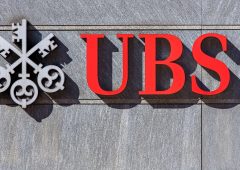Global Dollar Network Launched to Drive U.S. Stablecoin Adoption in Web3
05.11.2024 12:00 1 min. read Kosta Gushterov
Robinhood, Kraken, Galaxy Digital, among others, have launched the Global Dollar Network - a collaborative effort to enhance the role of the U.S. dollar in digital finance through stablecoin adoption.
The alliance aims to promote stablecoin use for real-world applications, leveraging collective expertise to drive innovative payment solutions. This initiative comes as regulatory attention around stablecoins intensifies, with more regions establishing guidelines for stablecoin issuers.
Although the Global Dollar Network has a select group of founders, it remains open to new members from various sectors, including exchanges, custodians, and card networks.
With stablecoins on the rise, many firms are pursuing opportunities in this sector to compete with dominant players like Tether (USDT) and Circle (USDC). Paypal, for instance, introduced its own stablecoin, PYUSD, though it hasn’t yet displaced the leading tokens.
Other firms, including Ripple, are advancing their own stablecoins, with Ripple’s RLUSD nearing launch following tests on Ethereum and the XRP Ledger. Similarly, Revolut is exploring a stablecoin launch, reflecting a growing trend among fintechs to enter the stablecoin arena through partnerships and alliances.
-
1
Market Odds of a U.S. Recession in 2025 Drop in Half Since May
05.07.2025 18:30 2 min. read -
2
What Brian Armstrong’s New Stats Reveal About Institutional Crypto Growth
29.06.2025 15:00 2 min. read -
3
Donald Trump Signs “One Big Beautiful Bill”: How It Can Reshape the Crypto Market
05.07.2025 9:56 2 min. read -
4
Vitalik Buterin Warns Digital ID Projects Could End Pseudonymity
29.06.2025 9:00 2 min. read -
5
Toncoin Launches UAE Golden Visa Program Through $100,000 Staking Offer
06.07.2025 12:04 2 min. read
BitGo Files Confidentially for IPO With SEC
BitGo Holdings, Inc. has taken a key step toward becoming a publicly traded company by confidentially submitting a draft registration statement on Form S-1 to the U.S. Securities and Exchange Commission (SEC).
Crypto Greed Index Stays Elevated for 9 Days — What it Signals Next?
The crypto market continues to flash bullish signals, with the CMC Fear & Greed Index holding at 67 despite a minor pullback from yesterday.
U.S. Public Pension Giant Boosts Palantir and Strategy Holdings in Q2
According to a report by Barron’s, the Ohio Public Employees Retirement System (OPERS) made notable adjustments to its portfolio in Q2 2025, significantly increasing exposure to Palantir and Strategy while cutting back on Lyft.
Key Crypto Events to Watch in the Next Months
As crypto markets gain momentum heading into the second half of 2025, a series of pivotal regulatory and macroeconomic events are poised to shape sentiment, liquidity, and price action across the space.
-
1
Market Odds of a U.S. Recession in 2025 Drop in Half Since May
05.07.2025 18:30 2 min. read -
2
What Brian Armstrong’s New Stats Reveal About Institutional Crypto Growth
29.06.2025 15:00 2 min. read -
3
Donald Trump Signs “One Big Beautiful Bill”: How It Can Reshape the Crypto Market
05.07.2025 9:56 2 min. read -
4
Vitalik Buterin Warns Digital ID Projects Could End Pseudonymity
29.06.2025 9:00 2 min. read -
5
Toncoin Launches UAE Golden Visa Program Through $100,000 Staking Offer
06.07.2025 12:04 2 min. read


